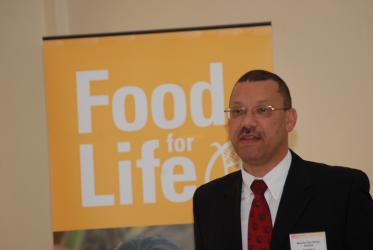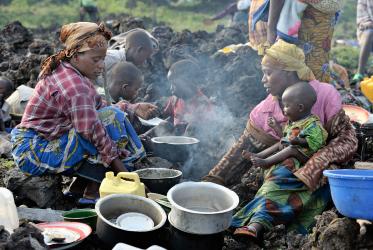Displaying 1 - 16 of 16
WCC Eco-School 2021 for Pacific region on Water, Food and Climate Justice
22 - 28 February 2021
WCC Eco-School begins in Thailand
07 November 2019
Worrying food shortages compel faith action
19 October 2018
WCC invites Churches’ Week of Action on Food 2018
11 October 2018
COP21: how climate change affects access to our daily bread
09 December 2015










